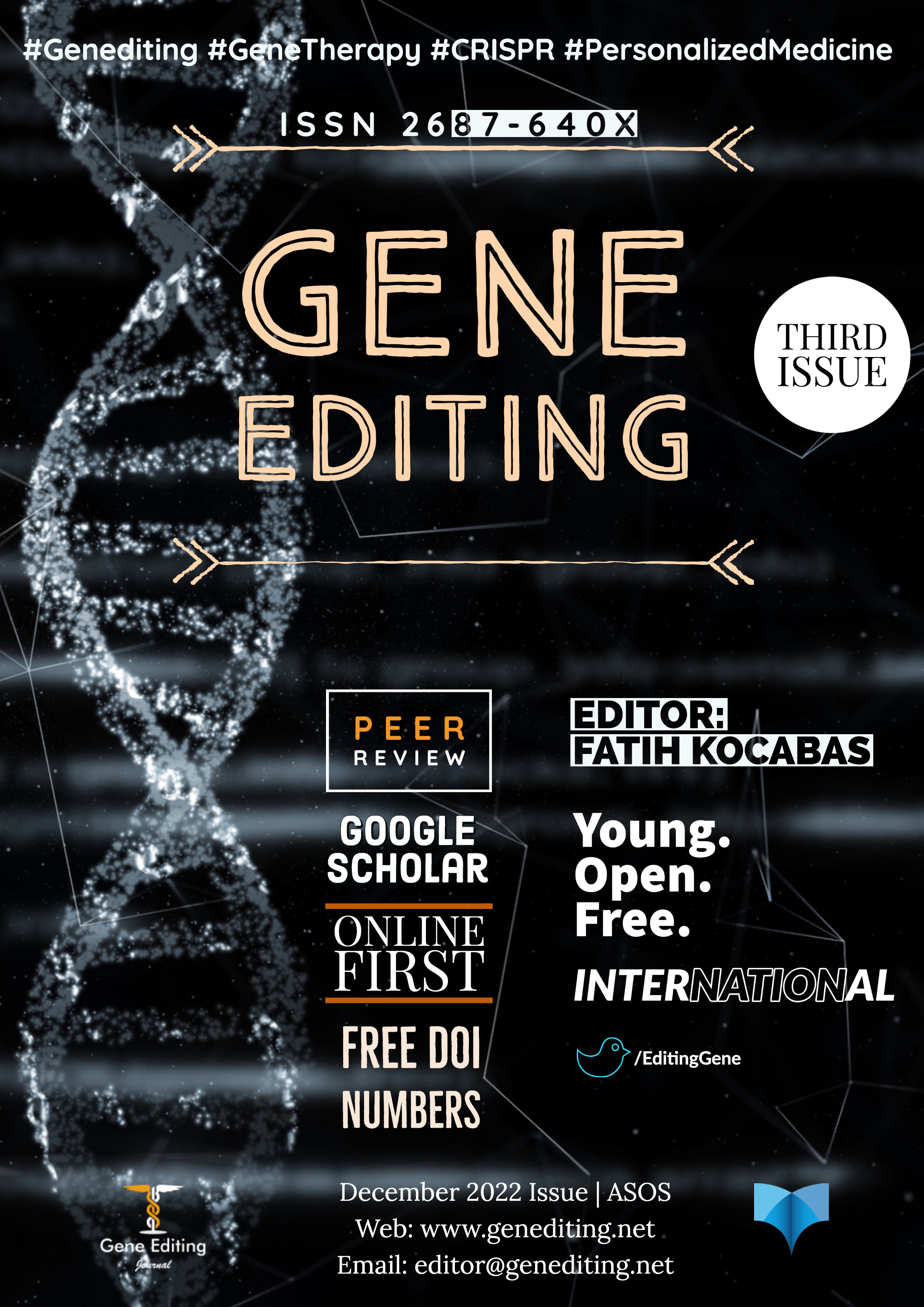Author :
Abstract
Keywords
Abstract
This thesis is about developing a cancer treatment using a gene therapy approach focused on the p53 gene, which is responsible for one in six deaths worldwide. When we look at the origins of cancer, we observe tumour suppressor genes that control regular cell activity being expressed and then mis regulated by genetic alterations. Reversing cancer cell tumorigenicity gives vital hints for cancer therapies. Understanding the molecular pathways involved in the loss of tumour suppressor gene activity is a crucial obstacle for cancer treatments. During the project process, axolotl (Ambystoma mexicanum) variations of the p53 gene, known as the cancer resistance gene, were focused on. This is because mutations in the human p53 gene are the most common cause of cancer and increase cancer resistance in the future. The axolotl is an important amphibian with the ability to regenerate. In addition to its regeneration feature, it shows high resistance to cancer formation. Axolotl adults do not undergo metamorphosis and live in water. Despite this situation, it has been observed that it is resistant when exposed to carcinogens. The human p53 gene contains mutation sites in the axolotl p53 gene, which differs from the human p53 gene by 38 amino acids. If the data collected at the end of the study yields the desired findings, it is hoped to develop products with more in-depth research and conduct genetic treatment studies in cancer-cancer resistance.
Keywords
- Amer, M. H. (2014). Gene therapy for cancer: present status and
- Amer, M. H. (2014). Gene therapy for cancer: present status andfuture perspective. Molecular and Cellular Therapies, 2(1), 27.
- Ashur-Fabian, O., Avivi, A., Trakhtenbrot, L., Adamsky, K.,Cohen, M., Kajakaro, G., Joel, A., Amariglio, N., Nevo, E.,Rechavi, G. (2004). Evolution of p53 in hypoxia-stressed Spalaxmimics human tumor mutation. Proc Natl Acad Sci U S A, 101(33):12236-12241.
- Brockes, J.P. (1998) Regeneration and cancer. Biochim Biophys Acta 1377(1):M1-11.
- Derry, W.B., Putzke, A.P., Rothman, J.H. (2001) Caenorhabditiselegans p53: role in apoptosis, meiosis, and stress resistance. Science 294(5542):591-595.
- Fleck, C.C., Carey, H.V. (2005) Modulation of apoptoticpathways in intestinal mucosa during hibernation. Am J Physiol Regul Integr Comp Physiol, 289(2):R586-R595
- Ingram AJ. (1971). The reactions to carcinogens in the aksolotl(Ambystoma mexicanum) in relation to the ‘regeneration field control’ hypothesis, 26(3) 425-41.
- Murphy, P.J., Galigniana, M.D., Morishima, Y., Harrell, J.M.,Kwok, R.P., Ljungman, M., Pratt, W.B. (2004) Pifithrin-alphaprotein with hsp90 and its nuclear translocation. J Biol Chem 279(29):30195-30201.
- Suleiman, S., Wismayer, P. S., Agius, J. C., 2019. The aksolotlmodel for cancer research: a mini-review. JBUON, 24(6), 2227- 2231.
- Thukral, S.K., Lu, Y., Blain, G.C., Harvey, T.S., Jacobsen, V.L.,(1995) Discrimination of DNA binding sites by mutant p53 proteins. Mol Cell Biol 15(9):5196-5202
- Villiard, É., Brinkmann, H., Moiseeva, O., Mallette, F. A.,Ferbeyre, G., & Roy, S. (2007). Urodele p53 tolerates amino acidchanges found in p53 variants linked to human cancer. BMC Evolutionary Biology, 7(1), 180.
- Vogelstein, B., Lane, D., Levine, A.J. (2000) Surfing the p53 network. Nature, 408(6810):307-310.
- Vieira, WA, Wells, KM ve McCusker, CD (2020). Yenilenme veYaşlanma için Axolotl Modelindeki Gelişmeler. Gerontoloji , 66 (3), 212–222. https://doi.org/10.1159/000504294
- Demircan, T., Avşaroğlu, M. E., Öztürk, G. ve Keskin, İ. (2017).Aksolotl rejenerasyonunun farklı evrelerinde miRNA profilininbulunması ve bulunan miRNA'ların görevlerinin in-siliko analizi.Haydarpaşa Numune Eğitim ve Araştırma Hastanesi Tıp Dergisi,57(3), 125-134. https://dx.doi.org/10.14744/hnhj.2017.50251
- Springhetti, S., Bucan, V., Liebsch, C., Lazaridis, A., Vogt, PM, &Strauß, S. (2022). Axolotl ( Ambystoma mexicanum, Amex )Telomeraz Ters Transkriptazın (Amex TERT) Tanımlanması veKarakterizasyonu. Genler , 13 (2), 373. https://doi.org/10.3390/genes13020373
- Ingram AJ. The reactions to carcinogens in the axolotl(Ambystoma mexicanum) in relation to the "regeneration fieldcontrol" hypothesis. J Embryol Exp Morphol. 1971 Dec;26(3):425-41. PMID: 4111936.
- Sánchez Alvarado A. (2004). Regeneration and the need forsimpler model organisms. Philosophical transactions of theRoyal Society of London. Series B, Biological sciences, 359(1445), 759–763. https://doi.org/10.1098/rstb.2004.1465
- Brockes J. P. (1998). Regeneration and cancer. Biochimica etbiophysica acta, 1377(1), M1–M11. https://doi.org/10.1016/s0304-419x(97)00029-2
- Boilly, B., Faulkner, S., Jobling, P., & Hondermarck, H. (2017).Nerve Dependence: From Regeneration to Cancer. Cancer cell, 31(3), 342–354. https://doi.org/10.1016/j.ccell.2017.02.005





